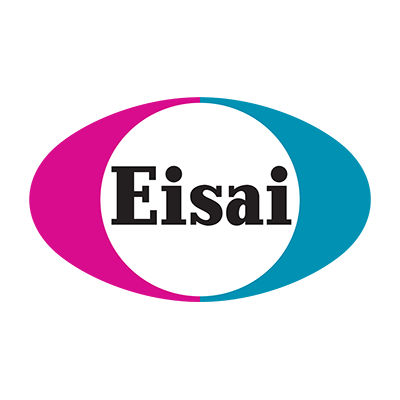预约演示
更新于:2025-05-07
Periarthritis
肩周炎
更新于:2025-05-07
基本信息
别名 Adhesions-capsulitis,shoulder、Adhesive Capsulitides, Shoulder、Adhesive Capsulitis of the Shoulder + [58] |
简介 Inflammation of the tissues around a joint. (Dorland, 27th ed) |
关联
31
项与 肩周炎 相关的药物靶点 |
作用机制 COX-2抑制剂 |
在研机构 |
原研机构 |
最高研发阶段批准上市 |
首次获批国家/地区 美国 |
首次获批日期1998-12-31 |
靶点 |
作用机制 COX抑制剂 |
最高研发阶段批准上市 |
首次获批国家/地区 丹麦 |
首次获批日期1997-01-01 |
187
项与 肩周炎 相关的临床试验CTRI/2025/04/085665
A clinical study of role of Nasya karma with Sairiya taila in the management of Avabahuka with special reference to Frozen shoulder. - NIL
开始日期2025-05-06 |
申办/合作机构- |
CTRI/2025/04/085300
Effect of Magneto therapy on Pain, Range of motion, and Function inindividuals with Shoulder Adhesive Capsulitis - NIL
开始日期2025-05-01 |
申办/合作机构- |
ChiCTR2500099313
Clinical study on ultrasound-guided suprascapular nerve radiofrequency combined with extracorporeal shock wave therapy for shoulder periarthritis
开始日期2025-05-01 |
申办/合作机构 |
100 项与 肩周炎 相关的临床结果
登录后查看更多信息
100 项与 肩周炎 相关的转化医学
登录后查看更多信息
0 项与 肩周炎 相关的专利(医药)
登录后查看更多信息
1,466
项与 肩周炎 相关的文献(医药)2025-12-31·Annals of Medicine
Comparison of combined suprascapular and axillary nerve pulsed radiofrequency and nerve block for the treatment of primary frozen shoulder: a prospective cohort study
Article
作者: Huang, Jiangyou ; Zhang, Weibo ; Chen, Gang ; Tian, Suming ; Wu, Yue
2025-05-01·The Journal of Steroid Biochemistry and Molecular Biology
Mechanistic insights into the anti-fibrotic effects of estrogen via the PI3K-Akt pathway in frozen shoulder
Article
作者: Yang, Yitao ; Yan, Yan ; Yao, Zeyu ; Long, Yi ; Meng, Chenyang ; Cui, Dedong ; Ali, Maslah Idiris ; Yang, Rui ; Zhang, Jinming ; Wang, Zhuo ; Liu, Xiaoshan ; Li, Xinhao
2025-04-01·Joint Diseases and Related Surgery
Efficacy of ozone therapy in the treatment of frozen shoulder in rats: An experimental study
Article
作者: Ayan, Deniz Mert ; Kaya Simsek, Ekin ; Haberal, Bahtiyar ; Araz, Coskun ; Turkbey Simsek, Duygu
50
项与 肩周炎 相关的新闻(医药)2025-04-29
·米内网
精彩内容近日,中成药贴膏剂市场再迎重磅新品,健民药业集团的中药1.1类创新药小儿牛黄退热贴膏获批上市。米内网数据显示,中成药贴膏剂在近年中国零售药店(城市实体药店和网上药店)终端市场规模持续扩容,销售额均超过50亿元,2024年同比增长2.01%。从TOP20来看,10个独家产品“霸屏”,9亿大品种领跑,妇科药大涨150%,羚锐5大品牌亮眼。近年中国零售药店终端中成药贴膏剂销售情况(单位:亿元)来源:米内网格局数据库米内网数据显示,中成药贴膏剂在近年中国零售药店(城市实体药店和网上药店)终端市场规模持续扩容,销售额均超过50亿元,2024年同比增长2.01%。其中,城市实体药店是主力销售渠道,网上药店保持双位数增速。从治疗大类来看,骨骼肌肉系统疾病用药位居第一,市场份额占比超过80%;儿科用药、消化系统疾病用药分别位居第二、三。从在销品种数量来看,涉及超过产品160个、品牌430个。从集团TOP20来看,羚锐制药、云南白药、奇正集团位居前三,逢春制药、沈阳管城制药增速翻倍,黄石卫生材料药业、哈药集团、湖南金寿制药、湖南杏林春药业均有双位数增速。10个独家产品“霸屏”!妇科药大涨150%,奇正、羚锐、云南白药上榜2024年中国零售药店终端中成药贴膏剂产品TOP20(单位:亿元)来源:米内网格局数据库注:销售额低于1亿元用*表示产品TOP20中,消痛贴膏多年来稳居“销冠”宝座,通络祛痛膏和云南白药膏分别排在第二、三位,销售额均超过5亿元。妇科用药养血调经膏凭借150.73%的增速首次上榜,麝香壮骨膏则是竞争最激烈的产品,在销企业数量达46家,消炎镇痛膏、关节止痛膏、伤湿止痛膏均超过20家。10个独家产品中,消痛贴膏(西藏奇正藏药)、通络祛痛膏(河南羚锐制药)、云南白药膏和云南白药创可贴(云南白药无锡药业)、丁桂儿脐贴(亚宝药业集团)、骨通贴膏(桂林华润天和药业)销售额均超过1亿元,而云南白药膏(云南白药无锡药业)则是增速最快的独家产品。2024年中国零售药店终端中成药贴膏剂品牌TOP20(单位:亿元)来源:米内网格局数据库注:销售额低于1亿元用*表示品牌TOP20中,西藏奇正藏药的消痛贴膏、河南羚锐制药的通络祛痛膏、云南白药无锡药业的云南白药膏位居前三。哈药世一堂制药的养血调经膏、九寨沟天然药业的壮骨麝香止痛膏、安徽金马药业的消炎镇痛膏为新上榜品牌。从企业数量来看,河南羚锐制药最多,通络祛痛膏、壮骨麝香止痛膏、麝香壮骨膏、舒腹贴膏、伤湿止痛膏5个上榜;桂林华润天和药业有3个,分别是骨通贴膏、麝香壮骨膏、天和追风膏;云南白药无锡药业有云南白药膏和云南白药创可贴上榜。消痛贴膏是奇正藏药的独家产品,用于急慢性扭挫伤、跌打瘀痛、骨质增生、风湿及类风湿疼痛、落枕、肩周炎、腰肌劳损和陈旧性伤痛。该产品在2024年中国零售药店终端销售额超过9亿元,是中成药贴膏剂TOP1产品和品牌。奇正藏药表示,消痛贴膏作为公司明星产品,融合藏药经典验方和先进的真空冻干和低温粉碎现代制剂技术,凭借专利技术发明和产业化能力,提升产品的质量和疗效,改善患者使用体验,正式拉开了藏药工程化的大幕。未来,公司在骨骼肌肉领域,坚持围绕核心产品消痛贴膏,稳定其市场份额,并加快骨骼肌肉领域产品矩阵推广,重点推动铁棒锤止痛膏、青鹏软膏、白脉软膏、如意珍宝片等品种的增长。羚锐制药有5个品牌上榜,通络祛痛膏是其独家产品,该产品近年在中国零售药店终端市场规模持续扩容,2023年突破5亿元后,2024年再度增长近8%;此外,壮骨麝香止痛膏、麝香壮骨膏、舒腹贴膏、伤湿止痛膏在2024年中国零售药店终端羚锐制药的市场份额均位居第一。羚锐制药表示,公司研发创新将立足发展需要,以“中药现代化+高端制剂”为核心,聚焦骨科、疼痛管理、慢性病领域,推动研发创新工作提质增效。其中,核心产品升级方面,持续推进通络祛痛膏等已上市产品的二次开发,在循证医学证据、适应症范围扩大等方面进行深入研究,进一步做强大品种。健民拿下重磅1类新药,康缘、赛立克……火热来袭来源:米内网一键检索近日,健民药业集团的中药1.1类创新药小儿牛黄退热贴膏获批上市,该药品处方源自全国名中医的临床经验方,贴于大椎穴和神阙穴,具有退热解表、清热解毒功效,用于小儿急性上呼吸道感染风热证所致的发热(38.5℃及以下),该药品的上市为急性上呼吸道感染风热证所致的1至5岁发热儿童患者提供了新的治疗选择。健民药业集团表示,小儿牛黄退热贴膏获批上市将进一步丰富公司产品线,有利于提升核心竞争力,对公司未来发展产生积极影响。2019年至今,中成药贴膏剂1类新药仅有健民药业集团的小儿牛黄退热贴膏获批上市,暂无产品报产在审,江苏康缘药业的栀黄贴膏和海南赛立克药业的马钱子碱凝胶贴膏获批临床。其中,江苏康缘药业的栀黄贴膏进入Ⅱ期临床阶段,拟用于急性软组织损伤。资料来源:米内网数据库、公司公告注:米内网《中国城市实体药店药品终端竞争格局》,统计范围是:全国地级及以上城市实体药店,不含县乡村药店;《中国网上药店药品终端竞争格局》,统计范围是:全国网上药店所有药品数据,包括天猫、京东等第三方平台及私域平台上所有网上药店药品数据;上述销售额以产品在终端的平均零售价计算。如有疏漏,欢迎指正!免责声明:本文仅作医药信息传播分享,并不构成投资或决策建议。本文为原创稿件,转载文章或引用数据请注明来源和作者,否则将追究侵权责任。投稿及报料请发邮件到872470254@qq.com稿件要求详询米内微信首页菜单栏商务及内容合作可联系QQ:412539092【分享、点赞、在看】点一点不失联哦
上市批准医药出海
2025-04-25
·医脉通
今天的医疗圈发生了哪些与你有关的大事?更新、更全的医学动态3分钟一网打尽********今日关键词:2025年两院院士增选,医疗反腐,张文宏来源 | 医脉通作者 | 晚报君新闻60秒➤“医生举报3岁男童疑遭虐待”的视频热传,警方介入后回应@中国青年报 近日,一则医生接诊疑似被虐待儿童的视频在网络传播,引发广泛关注。一位自称浙江大学医学院附属儿童医院的叶医生发视频称,其接诊时遇到一名3岁男童,患儿全身多处受伤,经检查发现颅骨骨折、颅内血肿,并伴有多处撕裂伤。该医生怀疑孩子遭到长时间虐待,伤情可能为人为所致。该视频在多个平台发布,不少网友留言愤怒声讨。目前,原视频已不可见。据现代快报消息,4月23日上午,记者联系到浙大儿童医院。工作人员表示,医院确有该名叶姓医生,但并不了解其所述具体就诊情况,也不掌握相关患儿信息。工作人员强调,该事件并非医院官方发布,视频所述内容需进一步核实。另据大皖新闻报道,4月24日上午,杭州市公安局拱墅区分局武林派出所工作人员回应称,公安机关已经关注到网上视频情况并开展调查,网传小孩的情况是在异地发生,小孩是来杭州就诊,犯罪嫌疑人已经被当地公安机关采取强制措施,目前孩子处于安全状态。➤2025年两院院士增选,启动!@人民日报健康客户端 4月25日,中国工程院和中国科学院发布2025年院士增选指南。2025年中国工程院院士增选总名额为不超过100名,其中医药卫生学部12名(含中医药2名);中国科学院生命科学和医学学部拟增选19名院士。反腐60秒➤退休一年后,一医科大学副校长主动投案@“南粤清风”微信公众号、长安街知事 据广东省纪委监委4月25日消息,南方医科大学原党委常委、副校长宁习洲涉嫌严重违纪违法,主动投案,目前正接受纪律审查和监察调查。公开资料显示,宁习洲曾任南方医科大学党委组织部部长兼统战部部长,校长助理兼党委宣传部部长等职。2014年12月,宁习洲任南方医科大学党委常委、副校长,2024年1月退休。➤石河子大学第一附属医院原党委副书记、院长史晨辉主动投案@“清风兵团”微信公众号 石河子大学第一附属医院原党委副书记、院长史晨辉涉嫌严重违纪违法,主动投案,目前正接受新疆生产建设兵团纪委监委纪律审查和监察调查。医药60秒➤部分药品、医疗器械不再按进出境特殊物品监管@海关总署 4月24日,海关总署发布,经会签生态环境部、农业农村部、国家药监局同意,海关总署印发《海关总署关于明确部分货物、物品不再按进出境特殊物品监管的公告》,明确了海关对纳入药品、兽药、医疗器械管理的货物、物品,以及进出口环保用微生物菌剂不再按进出境特殊物品进行监管。➤张文宏团队公布广谱抗猴痘药物研发进展,将进入临床审批阶段@华山感染 4月24日,据华山感染,国家传染病医学中心主任、上海感染与免疫科技创新中心(广州国家实验室上海基地)主任张文宏教授日前在第三届感染病学术周上宣布,其团队在《信号转导与靶向治疗》杂志上发表了最新研究成果。首次获得比美国国立卫生研究院(NIH)用于临床研究的抗猴痘药物更强更广谱的新型抗病毒药物,为未来正痘病毒(如天花及其同类病毒)的潜在风险做了重要的技术储备。目前该药物即将进入临床审批阶段。➤千金药业富马酸比索洛尔片获批@千金药业 4月24日,千金药业公告,公司子公司获得国家药监局核准签发的富马酸比索洛尔片(2.5毫克、5毫克)《药品注册证书》。富马酸比索洛尔片是选择性β受体阻滞剂,用于治疗高血压、冠心病(心绞痛)、伴有心室收缩功能减退(射血分数≤35%)的慢性稳定性心力衰竭。➤华邦健康洛索洛芬钠口服溶液获批@华邦健康 4月24日,华邦健康公告,公司子公司获得国家药监局核准签发的洛索洛芬钠口服溶液《药品注册证书》。洛索洛芬钠口服溶液主要适用于类风湿关节炎、骨性关节炎、腰痛症、肩关节周围炎、颈肩腕综合征、牙痛;手术后、外伤后及拔牙后的镇痛和消炎等。责编|亦一封面图来源|医脉通医改新举措发布!一地缩减行政科室23个,降低行政后勤人员薪酬,绩效分配向临床一线倾斜三明医改2025年首站!“一把手”亲自抓医改,改革薪酬分配制度,提高医务人员固定收入占比医脉通是专业的在线医生平台,“感知世界医学脉搏,助力中国临床决策”是平台的使命。医脉通旗下拥有「临床指南」「用药参考」「医学文献王」「医知源」「e研通」「e脉播」等系列产品,全面满足医学工作者临床决策、获取新知及提升科研效率等方面的需求。☟戳这里,更有料!
高管变更疫苗
2025-02-13
·米内网
精彩内容
近日,NMPA官网显示,南京海纳医药以制药4类报产的洛索洛芬钠凝胶贴膏获批上市并视同过评。洛索洛芬钠凝胶膏为非甾体抗炎镇痛药,2023年在中国三大终端六大市场销售额超过14亿元。
洛索洛芬钠是20世纪80年代后期上市的改良型NSAIDs,是目前日本销量领先的NSAIDs品种。该药具有良好的消炎镇痛作用,临床上广泛用于类风湿性关节炎、腰痛、肩周炎、颈肩腕综合症等的抗炎镇痛;手术、外伤后及拔牙后的镇痛消炎;急性上呼吸道炎症的解热镇痛等。
米内网数据显示,近年来洛索洛芬钠凝胶贴膏市场呈现高速增长态势,2023年在中国三大终端六大市场(统计范围详见本文末)销售额超过14亿元,同比增长27.78%;2024年其上半年销售额超过8亿元,同比增长25.74%。
中国三大终端六大市场洛索洛芬钠凝胶贴膏销售情况(单位:万元)来源:米内网格局数据库
国内已上市的洛索洛芬钠制剂包括胶囊、普通片剂、颗粒、贴剂、贴膏剂、溶液剂等多种剂型。其中,洛索洛芬钠贴剂仅有原研企业LEAD获批进口,洛索洛芬钠凝胶贴膏此前仅有九典制药获批上市。
2025年开年,洛索洛芬钠凝胶贴膏独家市场格局被打破,乐明药业、北京泰德制药、南京海纳医药的洛索洛芬钠凝胶贴膏相继获批上市并视同过评,而作为该产品首仿企业的九典制药尚未通过一致性评价。
目前,国内还有16家药企的洛索洛芬钠凝胶贴膏仿制4类注册申请在审中,包括方盛制药、江苏万高药业、武汉法玛星制药、宁波美舒医药/浙江赛默制药、华润三九、阳光诺和、百诚医药、浙江昂利康等。
资料来源:米内网数据库、NMPA
注:米内网《中国三大终端六大市场药品竞争格局》,统计范围是:城市公立医院和县级公立医院、城市社区中心和乡镇卫生院、城市实体药店和网上药店,不含民营医院、私人诊所、村卫生室,不含县乡村药店;上述销售额以产品在终端的平均零售价计算。
本文为原创稿件,转载请注明来源和作者,否则将追究侵权责任。投稿及报料请发邮件到872470254@qq.com稿件要求详询米内微信首页菜单栏商务及内容合作可联系QQ:412539092
【分享、点赞、在看】点一点不失联哦
上市批准一致性评价
分析
对领域进行一次全面的分析。
登录
或

Eureka LS:
全新生物医药AI Agent 覆盖科研全链路,让突破性发现快人一步
立即开始免费试用!
智慧芽新药情报库是智慧芽专为生命科学人士构建的基于AI的创新药情报平台,助您全方位提升您的研发与决策效率。
立即开始数据试用!
智慧芽新药库数据也通过智慧芽数据服务平台,以API或者数据包形式对外开放,助您更加充分利用智慧芽新药情报信息。
生物序列数据库
生物药研发创新
免费使用
化学结构数据库
小分子化药研发创新
免费使用


